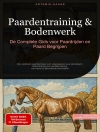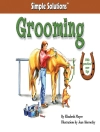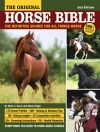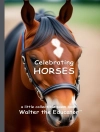‘Catalogues what happens to sport horses in plain sight … should be compulsory reading for all of us who care about horses.’ - Professor Paul Mc Greevy BVSc, Ph D, FRCVS; author, Equine Behaviour
Passionate, yet rigorous and meticulously researched, this eye-opening book holds equestrian sport up to Olympic standards and finds it sadly wanting.
Doping agents that used to cost Olympic medals, rebranded as benign ‘medication’. Shell federations with no riders or horses, propped up to make the sport seem ‘global’. Judging that favours spectacle over the rules. From the myth of gender equality, to the failure to prevent rollkur, to the easing of the ‘blood rule’ to appease riders, to horses competing with the nerves in their legs cut to numb the pain of injuries: this is a tale of entitlement, privilege, and spineless regulation, always at the expense of the horse. ‘I Can’t Watch Anymore’ chronicles and explains how the bureaucrats who run the Federation Equestre Internationale (FEI) have stripped and sold for parts one of the oldest Olympic sports in the world until finally, there is nothing left to preserve.
This compelling book challenges the reader to confront the reality of high-level equestrian competition today and say, along with so many others, ‘I can’t watch anymore’.
Tabella dei contenuti
Author’s Note
Preface
1 Equestrian: a sport for all?
The myth of gender equality
Economic barriers to participation
More flags does not really mean more participation in equestrian
events
Promoting grassroots take-up of equestrian sport?
Poverty-washing PR is demeaning and potentially harmful
Abuse of power in equestrian sport
2 Animals in the Olympics are a liability, not an asset
Animal exploitation and the Olympic brand
No evidence horses want to compete
3 Modern horse sport does not represent tradition
Traditional horsemanship and modern competition
Equestrian traditions and modern times
4 Doping, cheating, and why equestrian sport can
never be clean
The normalisation of drugs that enhance performance
Clean or corrupt, international horse sport and welfare don’t mix
Additional difficulties in avoiding prohibited substances in horses
5 The stories of Anton and Never
Removal of the ban on de-nerved horses in competition
Implications of allowing de-nerved horses in competition
6 Equestrian rules are unenforceable
A growing gap between rules and reality in dressage
Implications for fairness in judging
A welfare code incompatible with the reality of horse sport
7 The impact of social media
The emergence of ‘rollkur’
You Tube and the impact of video
From ‘rollkur’ to ‘hyperflexion’ to ‘LDR’: plus .a change
8 Equestrian sport and media repression
‘The riders don’t feel comfortable with the camera’
FEI World Reining Finals: well that was awkward
‘Take down that video!’
Intimidation of photographers at shows
Taking the fight to the courts
9 The price of more flags is declining safety
Logistical barriers limit opportunities to qualify
Standards in Equestrian’s ‘new markets’ are still too low
Contrived universality may harm athlete safety and public opinion
10 The equestrian fanbase is overstated
As the sport bleeds fans, the side-show becomes more and more
undignified
11 Equestrian will not meet modern standards.
Will the IOC?
Fear of litigation limits officials’ ability to enforce the rules
Conflicting views among member countries
Equestrian may not meet modern legal codes
Public exposure of abuse will only increase
Over to you, IOC
About the Author
Bibliography
Circa l’autore
Julie Taylor worked as a staff writer for Denmark’s premier glossy horse magazine, Magasinet Hest, before co-founding the groundbreaking equine science streaming service, Epona.tv. Epona.tv’s primary aim was to disseminate evidence-based horse knowledge, but its journalists also broke some of the biggest scandals in the history of equestrian sport, documenting horse abuse, doping, and cheating in stories that went worldwide.












